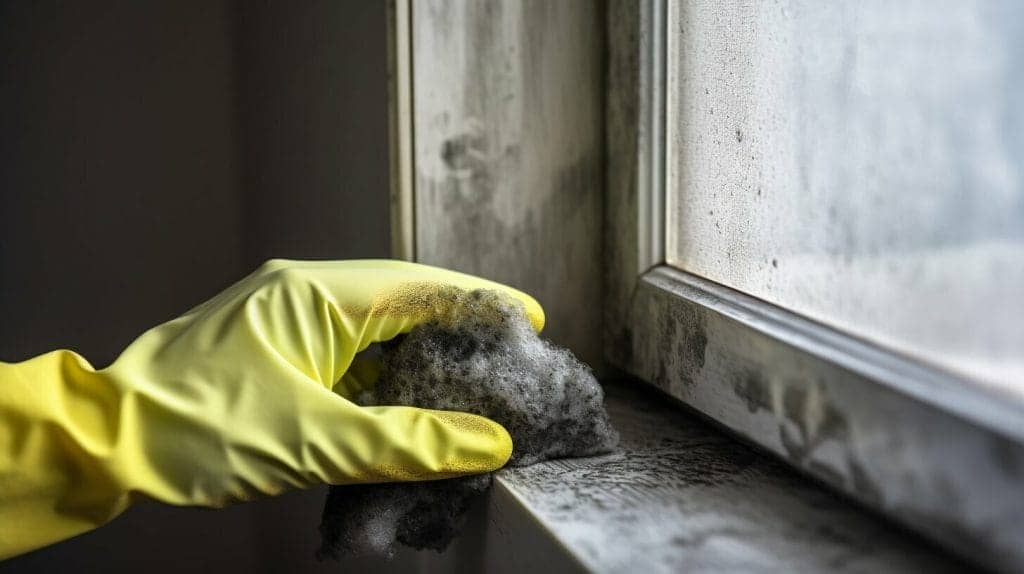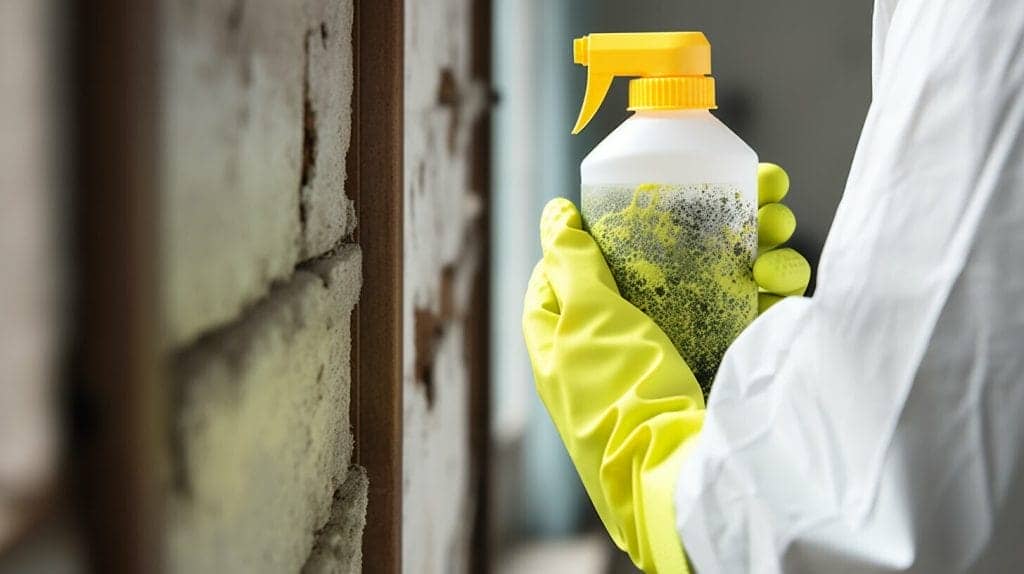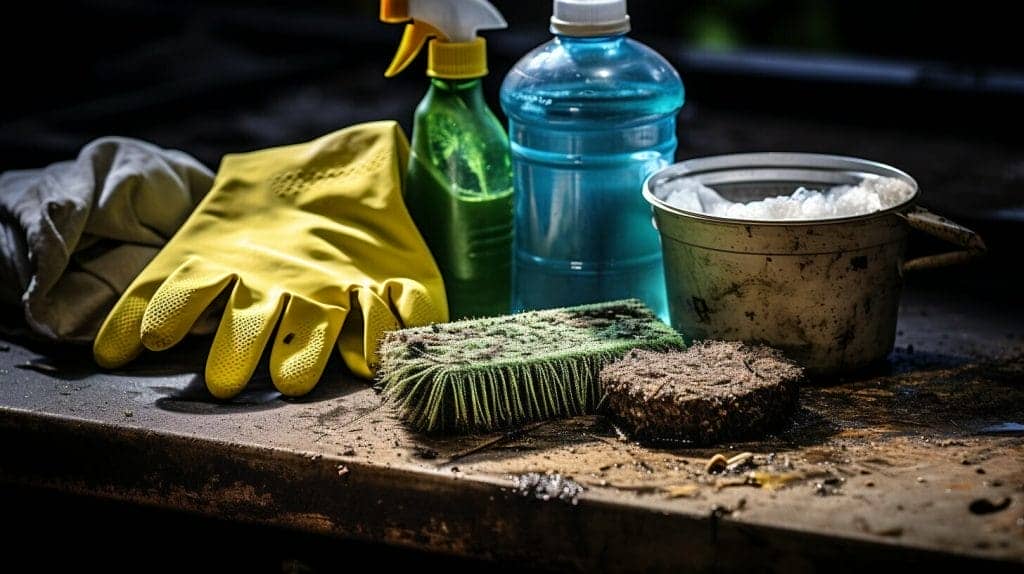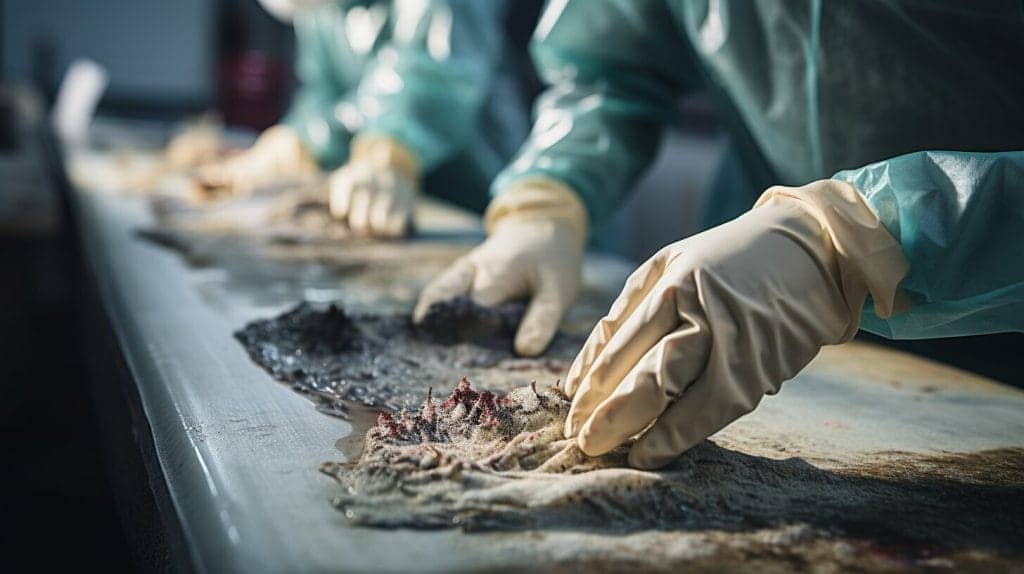Welcome to our article exploring the surprising connection between mold toxicity and spending issues. You may not realize it, but exposure to mold can have a significant impact on your finances. In this section, we will delve into the potential financial consequences of mold toxicity and what you can do to prevent them. So, can mold toxicity cause spending issues? Let’s find out!
First, it’s important to understand what mold toxicity is and how it affects the body. In the next section, we will discuss the symptoms of mold toxicity, how it can impact physical and mental health, and the potential financial consequences of exposure. Understanding the basics of mold toxicity is crucial for grasping its potential impact on your finances.
Understanding Mold Toxicity
Before we explore the connection between mold toxicity and spending issues, it’s important to understand what mold toxicity is and how it affects the body. Mold toxicity, also known as mold illness, is a term used to describe the adverse health effects that occur when someone is exposed to high levels of mold or mold spores.
The symptoms of mold toxicity can vary depending on the individual and the level of exposure, but they can include respiratory issues, such as coughing and wheezing, as well as neurological symptoms, such as headaches and brain fog. Mold toxicity can also impact mental health, causing anxiety and depression.
In addition to the physical and mental consequences, mold toxicity can also have a significant financial impact. The direct costs of medical bills and property damage can add up quickly, and the indirect costs of lost income and decreased productivity can also be substantial.
How Does Mold Toxicity Affect the Body?
Mold toxicity can affect the body in a number of ways. When someone is exposed to high levels of mold or mold spores, the immune system can become overwhelmed, leading to inflammation and cell damage. This inflammation and damage can cause a wide range of symptoms, including respiratory issues, neurological symptoms, and mental health issues.
One of the main mechanisms by which mold toxicity affects the body is through the production of mycotoxins. Mycotoxins are toxic substances produced by certain types of mold, and exposure to these toxins can cause a range of symptoms and health issues.
What Are the Financial Consequences of Mold Toxicity?
The financial consequences of mold toxicity can be significant. The direct costs of medical bills and property damage can be substantial, and these costs can be compounded by lost income and decreased productivity.
For example, if someone becomes ill due to mold exposure and is unable to work for an extended period of time, they may lose income and potentially face financial hardship. In addition, if the mold exposure occurred in a rental property, the landlord may be responsible for remediation costs and compensation for any damages suffered by the tenant.
Overall, the financial consequences of mold toxicity can be substantial, and it’s important to take steps to prevent and address mold exposure in order to protect your finances and your health.
The Hidden Financial Costs of Mold Toxicity
Mold toxicity can have multiple hidden financial costs that can impact your long-term financial well-being. Here are the most common costs associated with mold exposure:
| Cost Type | Description |
|---|---|
| Property Damage | Mold can cause significant damage to your property, which can be expensive to repair or replace. In some cases, the damage can be so severe that you may be forced to vacate your property. |
| Medical Bills | Mold exposure can cause a range of physical and mental health problems, many of which require medical attention and treatment. The cost of medical bills can quickly add up, especially if you require ongoing care. |
| Lost Income | If you become sick as a result of mold exposure, you may need to take time off work to recover. This can result in lost income, which can be detrimental to your financial stability. |
| Higher Insurance Premiums | If you file a claim related to mold damage, your insurance premiums may increase as a result. This can have long-term financial consequences, as you may end up paying more for insurance over time. |
| Decreased Property Value | Mold can reduce the value of your property, making it difficult to sell or refinance. This can have a significant impact on your long-term financial well-being, especially if you were planning to sell your property in the near future. |
It’s important to take these potential costs into account when considering the impact of mold toxicity on your finances. If you suspect that you may have been exposed to mold, it’s important to take action as soon as possible to prevent further damage.
How Mold Toxicity Can Affect Your Spending Habits
Although it may seem surprising, mold toxicity can have a significant impact on your spending habits. Research suggests that exposure to mold can lead to changes in behavior and decision-making, potentially resulting in impulsive purchases, overspending, and financial instability.
How does mold exposure affect your spending habits?
There are several ways in which mold toxicity can affect your spending habits. One of the primary ways is through its impact on your mental health. Exposure to mold can lead to symptoms such as anxiety, depression, and brain fog, which can all contribute to impulsive decision-making and overspending.
In addition, mold toxicity can cause physical symptoms such as headaches, fatigue, and respiratory issues, which can lead to missed work days and lost income. This can place a significant strain on your finances and make it difficult to manage your expenses.
Finally, the costs associated with mold remediation and medical bills can also contribute to financial instability. If you have to take time off work or undergo expensive treatments, you may find yourself struggling to pay for everyday expenses and bills.
What are the potential consequences of mold-related spending issues?
If left unchecked, mold-related spending issues can lead to significant financial problems. Overspending and impulsive purchases can lead to debt and financial instability, which can in turn impact your credit score and future financial opportunities. In addition, if you are unable to work due to mold-related health issues, you may face lost income and other financial consequences.
What can you do to mitigate the potential consequences?
If you suspect that you may have been exposed to mold, it’s important to take action to mitigate the potential consequences. This may include seeking medical attention, remedying the mold issue, and taking steps to reduce your risk of future exposure.
Additionally, it can be helpful to work with a financial advisor or counselor to develop a budget and financial plan that takes into account any potential expenses associated with mold toxicity. This can help you stay on top of your finances and avoid overspending or other financial issues.
In short, mold toxicity can have a surprising impact on your finances. By understanding the potential consequences and taking proactive measures to prevent and mitigate the effects of exposure, you can protect your financial well-being and avoid unnecessary financial stress.
Signs and Symptoms of Mold Toxicity
Mold exposure can have a range of physical and mental health effects, as well as potential financial consequences. Here are some common signs and symptoms of mold toxicity:
- Respiratory issues: Mold spores can cause respiratory symptoms such as coughing, wheezing, and shortness of breath. In some cases, mold exposure can also lead to asthma attacks.
- Headaches: Exposure to mold can trigger headaches and migraines in some people.
- Fatigue: Mold toxicity can cause fatigue and weakness, making it difficult to complete daily tasks.
- Memory and concentration problems: Mold exposure has been linked to cognitive issues, including memory problems, difficulty concentrating, and brain fog.
- Skin irritation: Exposure to mold can cause skin rashes, hives, and other dermatological symptoms.
If you are experiencing any of these symptoms, it’s important to speak with a healthcare professional to determine the underlying cause.
In addition to physical symptoms, there are also financial warning signs of mold exposure. These can include:
- Increased medical bills: The cost of medical treatment for mold-related symptoms can add up quickly.
- Property damage: Mold can cause damage to your home or workplace, which can be expensive to repair or replace.
- Lost income: If you are unable to work due to mold-related illness or property damage, you may experience a loss of income.
If you suspect that you have been exposed to mold, it’s important to address the issue as soon as possible to mitigate potential health and financial consequences.
Diagnosis and Treatment of Mold Toxicity
If you suspect that you may have been exposed to mold, it’s important to seek medical attention as soon as possible. Your healthcare provider will take a detailed medical history and perform a physical exam to assess your symptoms.
They may also recommend additional tests to confirm a diagnosis, such as blood tests, urine tests, or imaging studies like X-rays or CT scans. These tests can help identify the presence of mycotoxins in your body and determine the extent of your exposure.
Treatment Options for Mold Toxicity
The first step in treating mold toxicity is to identify and remove the source of exposure. This may involve remediation of your home or workplace, or relocation to a mold-free environment.
In addition, your healthcare provider may recommend supportive treatments to manage your symptoms and promote healing. Depending on the severity of your condition, these treatments may include:
| Treatment | Description |
|---|---|
| Antifungal medications | Prescription drugs that can eliminate fungal infections and reduce inflammation. |
| Detoxification therapy | Specialized treatments that help the body eliminate toxins and promote healing. |
| Nutritional supplements | Supplements containing vitamins, minerals, and other nutrients that support immune system function and help the body heal from mold exposure. |
It’s important to work closely with your healthcare provider to develop a treatment plan that is tailored to your individual needs and circumstances. Your provider can help you understand the potential risks and benefits of each treatment option and make informed decisions about your care.
Preventing Mold Exposure and Financial Consequences
Mold exposure can have a significant impact on your finances, but there are steps you can take to prevent it. Here are some strategies to reduce your risk of exposure and potential financial consequences:
Identify and Remediate Mold in Your Home or Workplace
The first step in preventing mold exposure is to identify any existing molds in your home or workplace. Check for areas where moisture accumulates, such as bathrooms, kitchens, and basements. Use a mold testing kit or hire a professional to test for mold if you suspect its presence.
If you find mold, take steps to remediate it immediately. This may involve hiring a professional mold remediation company or using DIY methods such as vinegar or bleach solutions. Make sure to follow proper safety precautions, such as wearing protective gear and ventilating the area.
Reduce Your Risk of Exposure
Even if you don’t have mold in your home or workplace, you can still take steps to reduce your risk of exposure. Keep humidity levels low by using a dehumidifier or air conditioner. Fix any leaks or water damage promptly. Use a HEPA filter in your vacuum to trap mold spores.
Consider Mold Insurance or Endorsement Coverage
Standard homeowner’s insurance policies typically don’t cover mold damage, so consider adding a mold endorsement or purchasing a separate mold insurance policy. This can help mitigate the financial impact of mold exposure, including property damage and lost income.
Regularly Monitor Your Finances
If you suspect that you’ve been exposed to mold, keep a close eye on your finances. Take note of any increased medical bills or property damage that may be related to mold exposure. This can help you identify potential financial issues early and take action to mitigate them.
By taking proactive measures to prevent mold exposure and minimize its financial consequences, you can protect your financial well-being and ensure a healthier living environment.
Seeking Legal Help for Mold-Related Financial Issues
If you believe that your exposure to mold has resulted in financial damages, it may be necessary to seek legal assistance. However, this can be a complicated and costly process, so it’s important to understand your options before proceeding.
When should I seek legal help?
If you have suffered significant financial losses as a result of mold exposure, such as medical bills, property damage, or lost income, you may want to consider seeking legal help. It’s also important to seek legal assistance if you believe that your landlord, employer, or another party is responsible for your mold exposure.
What legal options are available?
Depending on the circumstances of your case, there may be several legal options available to you. These may include filing a personal injury lawsuit, a premises liability claim, or a workers’ compensation claim. An attorney with experience in mold-related cases can help you determine the best course of action.
What are the costs associated with seeking legal help?
Legal assistance can be expensive, and costs may vary depending on the complexity of your case and the attorney you choose. Some attorneys may offer free consultations or work on a contingency basis, meaning that they only get paid if you win your case. It’s important to discuss fees and payment options with your attorney before signing any agreements.
How can I find a qualified attorney?
When seeking legal assistance for mold-related financial issues, it’s important to choose an attorney with experience in this area. You can start by asking for referrals from friends, family, or other professionals. You can also search online for attorneys who specialize in mold-related cases or contact your local bar association for a referral.
Remember, seeking legal help can be a challenging process, but it may be necessary to protect your financial well-being. By understanding your options and working with a qualified attorney, you can take steps to recover any damages caused by mold exposure.
FAQ: Can Mold Toxicity Cause Spending Issues?
Yes, mold toxicity can cause spending issues. Research suggests that mold exposure can lead to changes in behavior and decision-making, potentially resulting in impulsive purchases, overspending, and financial instability. It’s important to recognize the physical and mental symptoms of mold exposure, as they can have a significant impact on your overall health and finances.
What are some common financial warning signs of mold exposure?
Some common financial warning signs of mold exposure include increased medical bills and property damage. If you suspect that you may have been exposed to mold, it’s important to seek medical attention and take measures to remediate the issue.
What can I do to prevent mold exposure and the potential financial consequences?
To prevent mold exposure and the potential financial consequences, it’s important to identify and remediate mold in your home or workplace. This can include fixing leaky pipes, ensuring proper ventilation, and using dehumidifiers to reduce moisture. Taking proactive measures can also have potential financial benefits in the long run.
When should I seek legal help for mold-related financial issues?
If you believe that your mold exposure has caused financial damages, it may be necessary to seek legal help. This can include consulting with an attorney who specializes in mold-related cases. However, it’s important to research your options and understand the associated costs before pursuing legal action.
If you have additional questions or concerns about mold toxicity and its potential impact on your finances, there are many resources available. It’s important to take proactive measures to prevent mold exposure and to seek medical attention if you suspect that you may have been exposed.
Dr. Francisco Contreras, MD is a renowned integrative medical physician with over 20 years of dedicated experience in the field of integrative medicine. As the Medical Director of the Oasis of Hope Hospital in Tijuana, Mexico, he has pioneered innovative treatments and integrative approaches that have been recognized globally for the treatment of cancer, Lyme Disease, Mold Toxicity, and chronic disease using alternative treatment modalities. Dr. Contreras holds a medical degree from the Autonomous University of Mexico in Toluca, and speciality in surgical oncology from the University of Vienna in Austria.
Under his visionary leadership, the Oasis of Hope Hospital has emerged as a leading institution, renowned for its innovative treatments and patient-centric approach for treating cancer, Lyme Disease, Mold Toxicity, Long-Haul COVID, and chronic disease. The hospital, under Dr. Contreras's guidance, has successfully treated thousands of patients, many of whom traveled from different parts of the world, seeking the unique and compassionate care the institution offers.
Dr. Contreras has contributed to numerous research papers, articles, and medical journals, solidifying his expertise in the realm of integrative medicine. His commitment to patient care and evidence-based treatments has earned him a reputation for trustworthiness and excellence. Dr. Contreras is frequently invited to speak at international conferences and has been featured on CNN, WMAR2 News, KGUN9 News, Tyent USA, and various others for his groundbreaking work. His dedication to the medical community and his patients is unwavering, making him a leading authority in the field.
Contreras has authored and co-authored several books concerning integrative therapy, cancer, Lyme Disease and heart disease prevention and chronic illness, including "The Art Science of Undermining Cancer", "The Art & Science of Undermining Cancer: Strategies to Slow, Control, Reverse", "Look Younger, Live Longer: 10 Steps to Reverse Aging and Live a Vibrant Life", "The Coming Cancer Cure Your Guide to effective alternative, conventional and integrative therapies", "Hope Medicine & Healing", "Health in the 21st Century: Will Doctors Survive?", "Healthy Heart: An alternative guide to a healthy heart", “The Hope of Living Cancer Free”, “Hope Of Living Long And Well: 10 Steps to look younger, feel better, live longer” “Fighting Cancer 20 Different Ways”, "50 Critical Cancer Answers: Your Personal Battle Plan for Beating Cancer", "To Beat . . . Or Not to Beat?", and “Dismantling Cancer.”





















